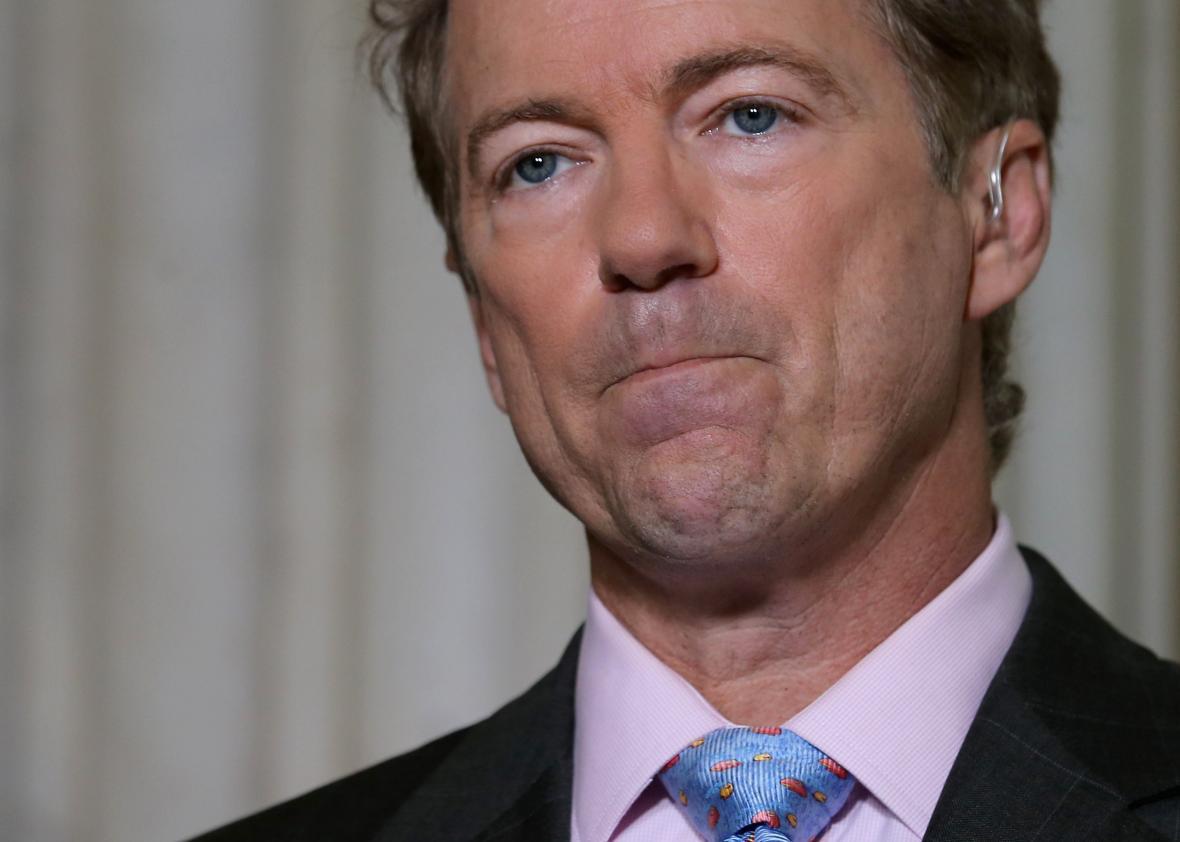Rand Paul’s presidential campaign has seen better days. The libertarian-ish candidate entered the nominating cycle as “the most interesting man in politics.” Today he’s lagging in the polls, lacking in fundraising, and has been battered by the recent indictment of a pair of longtime advisers. His recent swings—on the debate stage and off—at Donald Trump, meanwhile, have done little to right his ship. Now, there’s even more trouble on the horizon.
Politico reports Tuesday that Kentucky GOP leaders could add insult to Paul’s injury later this month by voting down his request that they rewrite party rules to allow him to compete in both his home state’s presidential primary and its Republican Senate primary, which are currently slated to be held together on the same day in May 2016:
Though that approval once seemed assured, several members of the party executive committee told POLITICO they’re seeing increasing trepidation, in part because of Paul’s perceived fade from contention but also because he hasn’t yet fulfilled promises to cover the cost of any changes.
Kentucky’s current law prevents a candidate from appearing on the same ballot twice. To get around that legal roadblock, the senator has been pushing for months for the GOP to scrap its presidential primary in favor of a presidential caucus that would be held two months before the primary. That would allow Paul to compete in his home state’s presidential nominating contest and then again two months later in the primary for the Republican nomination for his current Senate seat. (That would only be a temporary solution since Paul would find himself in the same double-listing quandary come November 2016 if he were to win the GOP nomination—but that’s a problem he’d clearly love to have.)
It seems pretty clear that many of the party’s reservations about the change would disappear if Paul would simply put up the half-a-million-or-so dollars it would cost to stage the caucus. “There should be no direct cost to the party,” Scott Lasley, a state executive committee member, told Politico. “If the money is not there … then I think all bets are off.”
The state Republican Party’s 340-member central committee is slated to vote on the matter a week from this Saturday. Paul will need to convince two-thirds of the committee to vote for a change. If he can’t, he’d still have a few other potential workarounds to pursue—though none would be as simple as his caucus proposal, and all would likely eat up more time and resources that Paul would be better served spending on his floundering presidential campaign.
